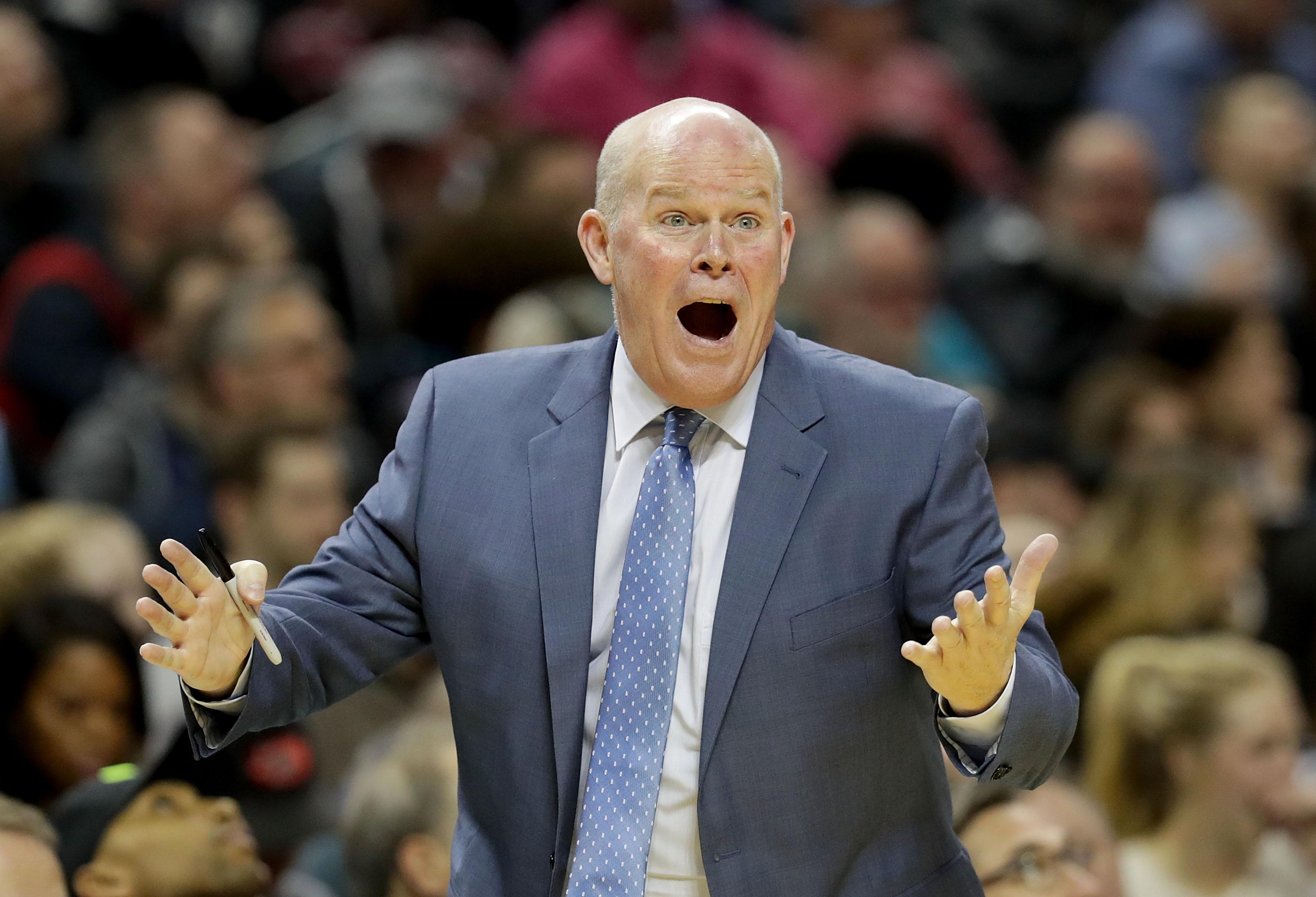On Friday morning, Steve Clifford was dismissed from his Hornets head-coaching position after five seasons on the job. There are now only two main vestiges of the ignominious Charlotte Bobcats era of a stitched-together franchise history: Kemba Walker and Michael Jordan. (Michael Kidd-Gilchrist is still there, but his presence is barely felt.) One is likely to be traded, the other isn’t going anywhere.
I will always remember Clifford as the Last Bobcats Coach, which in no way should be considered an honor, and yet, in the context of Charlotte’s sad NBA history since 2004, it was. The Bobcats made the playoffs that season, playing the role of pesky gnat buzzing around LeBron James’s ear. It was Clifford’s first head-coaching job in the NBA, after years of being a disciple under the Van Gundy brothers. He might as well have been the third Van Gundy: a no-nonsense defensive tactician who nonetheless was a witty and insightful quote. Two years later, that gnat became a Hornet, and that team took the Miami Heat to seven games in the first round of the 2015-16 playoffs.
History isn’t written with these microvictories in mind, but they’re important in gauging Clifford’s next move. Clifford, who took roughly a month’s leave of absence to deal with chronic headache issues earlier in the season, is in good health and will likely be courted by several teams with openings on their bench. Franchises can do much worse than a coach who has a reputation of building strong bonds with his players and can make even the most lackluster rosters in the NBA competent defensively. From 2013-14 to 2015-16, Charlotte was a top-10 defense despite relying on players like an aging Al Jefferson and a young Cody Zeller as defensive anchors around the rim. Clifford was able to simplify the schemes for his big men, largely asking plodding centers like Jefferson to drop back, allowing his multiple hellhound wings on the perimeter to pick up most of the slack. The teams he coached were hardly built for the present, much less the future, but he made do.
Clifford was responsible for one of my favorite games ever: a sadistic 80-71 Hornets overtime win over the Pacers. The Pacers’ 71 points remains the lowest total in an overtime game in 65 years. That was the hallmark of the Hornets: They ground opponents into paste, and ground themselves into paste in the process. Charlotte’s winning strategy, in another discipline, was what you might call #uglydelicious.
But then the future happened. Teams were co-opting the pace-and-space formula, or at least trying to. Everyone had a spread pick-and-roll attack that forced big men into space, and the tenets of Clifford’s schemes were stretched and pulled like taffy. After allowing no more than 102 points per 100 possessions in his first three seasons, the Hornets have had a defensive rating no lower than 106 in their past two. That’s essentially league average in the NBA’s offensive boom.
Firing a coach is never the solution. It is usually a signal fire for changes to come. Clifford maxed out his influence on a team that wasn’t going anywhere, and it wasn’t nearly enough. There was nothing left to do for this version of the team. The Hornets had identical 36-46 records over their past two seasons, overcoming myriad injuries and odd roster fits. I’m sure there are coaches within the league’s fraternity who are curious to see what Clifford might be able to install in a team that didn’t already find itself on the mediocrity treadmill. With a newfound coaching vacancy and new GM Mitch Kupchak, Charlotte can perhaps begin an earnest ground-floor rebuild, once again sinking to the extreme depths of the league in the quest of attaining the no. 1 pick in a draft that has eluded the franchise for more than a decade. Because with Clifford in the coaching seat, there was no way that was going to happen, for better or worse.


